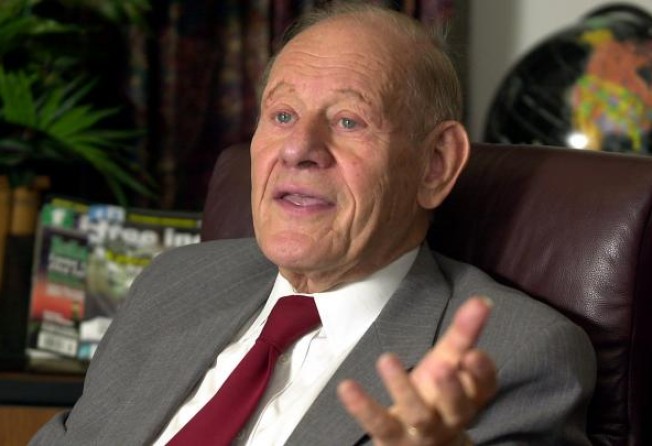US secular humanist Paul Kurtz dies at 86
US philosopher Paul Kurtz, 86, was leading promoter of non-religious stances since 1960s

Paul Kurtz, a leading US philosopher who devoted his life to fighting prejudice against people who reject belief in a god and promoting a non-religious stance in life, has died at the age of 86.
The secular humanist Centre for Inquiry (CFI), which he founded in 1991, said the ex-university professor - who as a young soldier helped liberate the Dachau concentration camp in 1945 - died in Amherst, New York, over the weekend.
"He was one of the most influential figures in the humanist and sceptical movements from the late 1960s through the first decade of the 21st century," said an obituary issued by CFI, which he had left over a succession dispute in 2010.
In Geneva, he was hailed by Roy Brown, chief representative at the United Nations Human Rights Council for the International Humanist and Ethical Union (IHEU) which Kurtz co-chaired from 1986-1994, as "a giant of our movement".
Brown, a former IHEU president, said Kurtz was especially important for founding in 1969 the non-profit publishing house Prometheus Books that issues works critical of religion.
In recent years, the US-based Prometheus has brushed aside threats to publish studies on the origins of Islam that question the traditional history of the faith, and on the situation of atheists and agnostics in Muslim countries. Kurtz, born into a New York Jewish family in 1925, wrote or edited more than 50 books on ethics without religion, critiques of religion and the paranormal, and on scepticism, or the challenging of received wisdom.
When receiving a lifetime award for his work in 2007, he declared: "I am a secular humanist because I am not religious. I draw my inspiration not from religion or spirituality but from science, ethics, philosophy and the arts."
His last book, What is Secular Humanism?, appeared in 2006. Thirty years earlier he founded the journal Free Inquiry which is credited with driving a shift from religion among younger Americans. Kurtz is widely seen as the forerunner of what is sometimes dubbed the "New Atheist" movement - represented by figures such as British biologist Richard Dawkins.